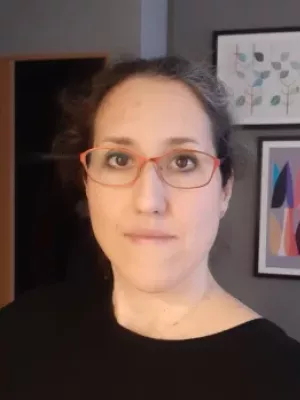
Maria Andrea Nardi
Researcher

Rural Development and Territorial Dynamics in the Province of Misiones, Argentina
Author
Summary, in English
In this context, the objective of this thesis is to analyse the diverse understandings of rural development actors have, as well as the consequences of alternative rural development interventions in family agriculture. In particular, I am interested in scrutinizing how different discourses and practices (material expressions) frame and create new relations between society and state, market and nature. The ultimate aim of the research is to contribute to the current debate in Latin America about social change in rural areas, by exploring the linkages between rural development strategies and the construction of new geographies, new territories.
The thesis have sought to answer the following research questions: What narratives and discourses on development are currently disputing the territory in the province of Misiones? What kinds of territories are under construction as a result of “alternative development” strategies and practices implemented by different actors in the rural development arena in interaction with “conventional” development strategies? In what ways are the new territorial dynamics reflecting the construction of an alternative development(s) and new territories and geographies?
The evidence shows that actors in the rural development arena seek to put into practice agroecology, a kind of agriculture environmental and socially oriented, as a means to sustain agriculture and at the same time allow ‘rooting’ families to land. Agroecology is a territorial dynamic that intends to “fix people in space” by giving them the chance to live on agriculture or in the countryside and appropriate their territory. By creating new projects, new horizons of actions and thoughts and by being farmers and putting land under production, the family agriculture sector sustains and reproduces itself. However, if these projects do not bring in the middle and long term wellbeing to people, rooting farmers to land will be assisting subsistence agriculture and the reproduction of cheap labour force for the agroindustrial companies with economic interests in Misiones. Particularly, in the case of tobacco, since there seems to be currently few alternatives to this crop that could provide stable monetary incomes to families. For families to be rooted instead of moving to towns and cities or in search of new lands, or providing cheap labour to companies while eking out a living from subsistence agriculture, discourses and practices must contribute to the creation of material possibilities and bring about in the long term structural changes: legal access to land, fair participation in markets, strong participation in policy making, etc.
Interventions in ecological agriculture are not just an attack on what locally has been labelled as ‘conventional’ and ‘modern’ agriculture; they are at the same time constructing new opportunities, together and despite that kind of agriculture. What started once as a promotion and strengthening of subsistence agriculture, developed into a movement for another agriculture (una otra agricultura). In confronting and creating alternatives, the roles of the state, the market and nature were redefined and reappropriated by people.
Department/s
- Department of Human Geography
Publishing year
2011
Language
English
Publication/Series
Meddelande från Lunds universitets geografiska institution. Avhandlingar
Issue
191
Full text
Document type
Dissertation
Publisher
Lund University
Topic
- Human Geography
Keywords
- Rural development
- territorial dynamics
- Misiones
- Argentina
- family agriculture
- alternative development
- Territory
- Agroecology
- Farmers' markets
- Seed markets
Status
Published
Supervisor
- Magnus Jirström
ISBN/ISSN/Other
- ISSN: 0346-6787
- ISBN: 978-91-979006-1-4
Defence date
15 April 2011
Defence time
13:00
Defence place
sal 111 (Världen), Geocentrum I, Sölvegatan 10, Lund
Opponent
- Fiona Wilson (Professor emeritus)

